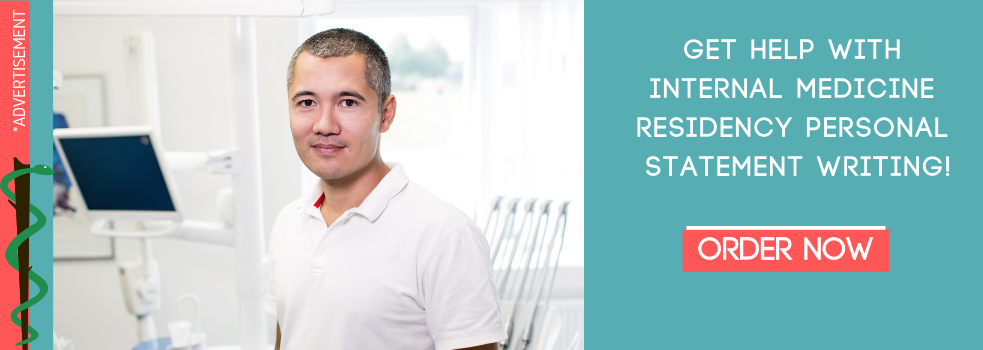6 Big Don’ts for Writing an Internal Medicine Personal Statement
Writing a captivating internal medicine personal statement does not always require you including every skill, education, achievements and qualities you possess. It involves knowing what to selectively write that reflects what makes you the best candidate with the right interest in a particular institution. And to do that effectively you then need to know what to write and what the 6 big don’ts of an effective personal statement internal medicine admission requirement should be.
Statistics on the Number of Applicants for Internal Medicine Residency Personal Statement
Based on AAMC records for applicants into internal medicine programs via ERAS® from 2011 to 2016 also requiring personal statement internal medicine a total of 27,740 US medical candidates applied for consideration. About 9,247 scored below 217 indicating their chances of entering into internal medicine school at step score 1.
From the American Journal of Medicine, ERAS® figures for 2010 to 2015 with individual applicants to the Accreditation Council for Graduate Medical Education (ACGME) shows a rise from 65 to 79 candidates. That of International Medical Graduate (IMG) rose from 97 to 120 candidates.
The matching process indicates the battle for admission has become more highly competitive. However, the admission rate into US allopathic program was at 1.51 indicating a 50% more slot waiting to be filled in 2015. Admission rates into mainstream medicine residency matching for 2015 show that up to 90%, however, receiving matching into the desired specialty for US seniors. A total of 34,905 candidates applied and 18,025 were for US allopathic seniors. Matching rose from 25,185 to 30,212.
Role of Personal Statement Internal Medicine Residency in Admission
The personal statement for internal medicine residency makes up one of the documents required for admission into medical residency. However, it is not the only document you need to submit. It is not even the most important document for internal medicine residency. If you have poor academic grades and incomplete or inappropriate documents having the personal statement for internal medicine will not still guarantee you a slot in med school.
However, the fact remains that having a personal statement increases your chances of success in internal medicine. Having every other document without the personal statement for internal medicine residency can result in not securing the admission. Because the personal statement besides been a requirement, it provides the screening committee to assess your compatibility or fit for the institution in a way your resume/cv and other documents cannot help achieve. Through the tales, you tell and the manner of presenting the admissions committee can get to access the following skills and qualities which is the role of the personal statement for internal medicine:
- It highlights your communication and interpersonal skills
- It helps identify how your experiences have helped shaped you for the specialty and future roles in medical practice.
- It helps spot your teamwork spirit.
- It can help identify your leadership abilities, cognitive plus the level of maturity.
- A good personal statement can help portray your values and ethics.
If you need more professional personal statement writing tips and samples, you should read other our articles.
Dos and Don’ts of Writing an Internal Medicine Residency Personal Statement
There are some things you need and others should not be heard of when it comes to writing an internal medicine residency personal statement. So, let consider them:
Dos:
- Use descriptive terms to show your passion and commitment to medicine.
- Communicate why you made medicine your career choice.
- Relay your personal experiences and career objectives in a passionate way.
- Talk about those special skills and qualities that make you a must have in the institution.
- Be honest about your comments because the committee can tell when you try to fake it or exaggerate. Try to explain any shortcomings in your academic history, the gap in training, failed courses, etc. but be sincere.
- Take ample time to edit and proofread your personal statement. Pay very close attention to details.
- Let other more experienced hands read through for errors and more.
Don’ts:
- Don’t exceed one page when writing the personal statement.
- Avoid plagiarism because that’s the last thing you want to be guilty of in an academic pursuit. Even when you have samples they should serve as a guide not to copy and paste. If AAMC receives an allegation of plagiarism against you then you might lose the right to participate in the NRMP matching process for the med school.
- Avoid listing your qualifications and achievements as that is what your CV should do.
- Do not make reference to your religious faith or talk about racial issues or sentiments or other derogatory terms, negative or abusive terms, buck-passing.
- Do not wait till the last or do a hurried work for your personal statement.
Writing an exceptional personal statement for internal medicine residency requires a lot of caution. Just one wrong move with the letter can ruin a well-executed letter and admission process.






